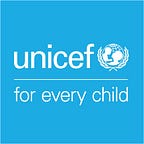World Water Day — 22 March 2018
Clean water saves lives
Nearly half of the population in Burundi lack access to safe drinking water.
A shortage of safe drinking water in Burundi presents a health crisis for children — water and sanitation-related diseases such as diarrhoea are one of the biggest causes of death for children under five around the world. Poor access to clean water also undermines their development: children, and particularly girls, often miss out on education as they make long journeys to fetch clean water.
Cholera outbreaks caused by contaminated drinking water occur in many areas of Burundi. In Ruyigi Province which borders Tanzania, children collect untreated water from a stream, which can have devastating consequences for their health.
“I am pregnant and I can’t walk very fast. In the last three months of my pregnancy, it will be more difficult for me to walk this long distance,” says Beatrice, 22, who walks almost four hours daily to collect 20 liters of water from a pump in Ngomante hill.
In Burundi, the burden of fetching water falls disproportionately on girls and women. With many having to walk for hours to fetch safe drinking water, they frequently miss out on school and are at risk of sexual violence en route to water points.
In Kinyinya hill, local residents stand around a puddle which serves as their only water source. A lack of access to clean water in the area means many of the children are affected by diarrheal and skin diseases.
“Safe water for a community is a shield against water-borne diseases” says UNICEF’s Water, Sanitation and Hygiene specialist Haladou Mahaman, standing in front of a water tank installed at the Kabezi cholera treatment center, part of the response to the cholera outbreak in the area.
With cholera endemic in many parts of Burundi, particularly those bordering Lake Tanganyika, the Democratic Republic of the Congo and Tanzania, UNICEF and its partners are working to improve access to safe water for communities, such as in Mukerezi-Mpakaniro hill, where a rainwater tank was built.
“I am relieved because I find the drinking water nearby and I do not have to walk long distances as before,” says Nadia, 10, who lives in Mukerezi-Mpakaniro hill and is now able to collect water for her family and get to school on time.
Hydraulic engineers working with UNICEF are helping to build systems that bring safe water to families and schools. By finding water sources, studying flows, and building water points, UNICEF and its partners are responding to the needs of local residents.
Burundi’s rugged terrain poses challenges to providing safe drinking water, but by working with local authorities and development partners, UNICEF is able to find sustainable solutions. A recently inaugurated project in Muhuta hill is bringing clean water to students like Adrien, 6.
“The protection and maintenance of new water points is very important to our community and we are keen to take care of them” says Pierre Ndayanse, a community leader from Sesa hill. UNICEF works with communities to ensure their participation in the maintenance and protection of water points.
By building essential infrastructure, as well as mobilizing and involving communities in the most isolated areas of Burundi, UNICEF and its partners are working to provide clean and safe water to children, which is essential for them to survive and thrive.
